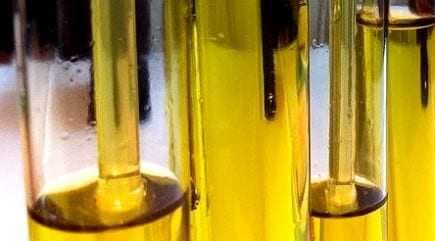
Olive oil authentication is to be the focus of an invitation-only scientific workshop to be held in Spain from June 10 – 11.
Organized by the European Commission’s Directorate-General for Agriculture, the Joint Research Centre of Geel, and the International Olive Council (IOC), it will be held at the IOC’s Madrid headquarters.
Scant detail is available so far but in their joint press release, the three organizers said the workshop would focus on “the evaluation of the quality parameters of edible olive oils as well as their authentication.”
“The objective of the workshop is to clarify the terms of reference to start international research projects in view of developing analytical methods as well as reinforcing the quality parameters of extra virgin and virgin olive oil.”
“The workshop will bring together worldwide experts working in the field of olive oil authentication, coming from IOC country-members or not,” the release says.
Details to be made public soon after event
The proceedings are to be published on the Commission’s Agriculture and Rural Development web site shortly after the workshop, and also on the IOC web site and in the IOC’s Olivae publication.
A Commission spokesperson for Agriculture and Rural Development told Olive Oil Times a provisional program was still being developed and further internal discussion was needed before more specific agenda topics could be agreed.
He said the invitation list, to be decided by the three organizers, was not yet finalized.
The research projects referred to will be funded by the European Union.
New and promised changes on verification tests and parameters
Just last month, the European Union published new regulations on testing designed to prevent and detect olive oil fraud. Among the requirements are that as of 2014, EU member states will have to do at least one targeted check annually per thousand tons of olive oil marketed in them and send more rigorous reports to the Commission on their testing.
In his olive oil action plan, European Commissioner for Agriculture Dacian Cioloş had also said the IOC would be asked to expedite its work on certain chemical parameters, among them reducing the limits for stigmastadienes and alkyl esters, definitive adoption of the global method for the detection of extraneous oils, and adoption of a diglycerides and triglycerides test.
However, due to the previously reported and continuing paralysis affecting IOC activities, it is understood the Commission is still awaiting further response from the IOC on this issue.
Better protection and information for consumers
Meanwhile, the EU is potentially a step closer to banning refillable olive oil containers in restaurants and other parts of the hospitality sector.
A draft regulation providing for this and also for stricter labeling rules — to ensure the category and origin of an olive oil is more visible and legible — was referred to the Geneva-based World Trade Organization (WTO) Committee on Technical Barriers to Trade (TBT) in February.
The TBT opened a 60-day comment period which expired on April 20 but details of the outcome have yet to be made public.
On receiving its response, the Commission’s Management Committee for the Common Organisation of Agricultural Markets will hold a formal vote on the proposed changes.
When it held an indicative vote in February, the proposals were supported with just 161 votes in favor, 131 against and 53 abstentions.
- European Commission notice re: Scientific workshop on olive oil authentication (Madrid, 10 – 11 June 2013)
- IOC release on scientific workshop on olive oil authentication (Madrid, 10 – 11 June 2013)
- European Commission amending regulation 299/2013 of 26 March 2013 providing for increased olive oil conformity checks








